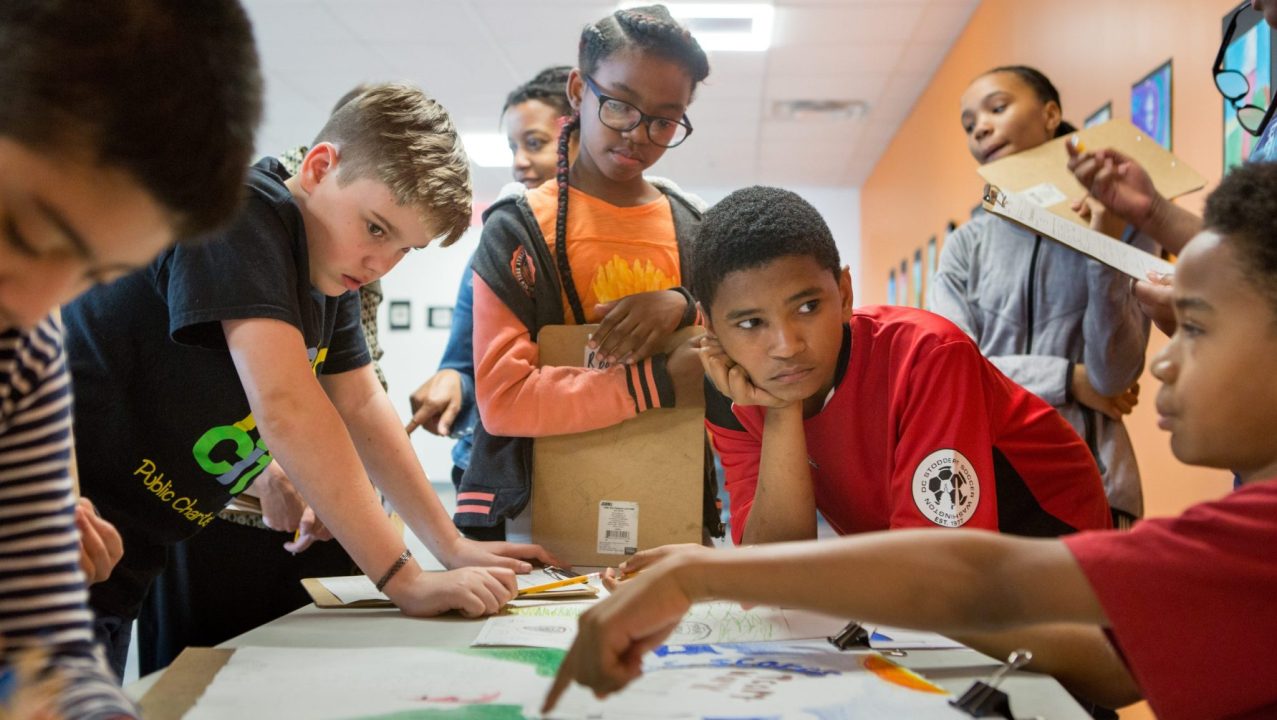Day 9: Preparing for the City Council Meeting

-
Culminating Project
SUMMARY OF WORK THUS FAR
Throughout the unit, learners have worked in inquiry circles to investigate three specific ecoregions in Texas, the ecosystems that make up these regions, the traits of plants that live there, and how changes in environmental conditions (e.g. rainfall, temperature) may have resulted in plants acquiring new traits. They have also conducted science investigations with Wisconsin Fast Plants to determine how more or less rainfall can result in acquired traits. By this point, teams have already completed their Inquiry Charts, organized their reference lists, and collected useful information in their science notebooks. Together, these completed activities have prepared learners to respond to the plea for assistance sent by a local leader.
OVERVIEW OF THE CULMINATING PROJECT
In this scenario-based culminating activity, you will remind learners that a city mayor (or a local leader) who lives in the ecoregion they studied is concerned about how changes in environmental conditions will impact the plants in their community and has asked learners for their help. As experts on the ecoregions, inquiry teams will write a report to inform the mayor about the changes in environmental conditions that have taken place in their ecoregion (and could continue to take place) and how these changes may have contributed to the plants acquiring new traits. They will present their reports at a simulated “city council meeting” (or a similar governance structure).
NOTE: If your learners have discussed leaders in state and local governments (4.16A), you might want to reference these conversations. If learners have not had experiences with or conversations about state and local governments, some things you could do to support this lesson might include sharing the name and a photo of your local mayor (if your city does not have a mayor, you might reference the leader of your city/town/township council) and/or watching a video of your mayor/leader speaking publicly (if available).
You might anticipate learners spending one day working on their reports and making connections between their text-based inquiry and science investigation. We suggest about 90 minutes on the day of preparation, but you can decide how much time to allow based on your schedule and learner needs. After the days of preparation, you might plan one day for presentations of the reports.
GUIDING QUESTIONS FOR THE CULMINATING PROJECT
Here are some guiding questions you might want to pose for the teams to respond to:
- What are some inherited traits of plants that live in your ecosystem?
- How can environmental factors result in changes in plants’ traits (acquired traits)?
- How have environmental conditions in your ecosystem changed in the past, and how might conditions change in the future?
- What impact could these changes have on plants in your ecosystem?
MATERIALS NEEDED
- science notebooks with all documents, notes, etc.
- Inquiry Charts
- access to materials for handwriting or typing a report
PROCEDURE
Each italicized statement below contains suggested wording the teacher may choose to use for the lesson; additional teacher actions and considerations are in parentheses.
- In your inquiry circle, you became experts on a Texas ecoregion, the kind of ecosystem in that regions, and the plants that live there. The mayor of a city in your ecoregion is concerned about how conditions (e.g. temperature, rainfall) have changed over time and will continue to change. The mayor is especially concerned about how changes in environmental conditions will impact the plants in the community. As experts on your ecoregion, you will write a report to address the mayors concerns and answer the mayor questions. (Introduce the letter from the mayor and re-read the letter together or in groups. Encourage learners to identify within the letter what questions the mayor has and discuss what kind of information they might include in their reports to address the mayor’s concerns.)
- As a team, you will work together to write one report. You will want to make sure that your report demonstrates what you know about the inherited traits of plants in your ecoregion (and/or the ecosystems present in your ecoregion), how environmental conditions in your ecoregion have changed over time and could continue to change, and how plants acquire traits as a result of changes in their environment. You can also include anything you think is important for your audience to know. Tomorrow, you will present your report at a city council meeting (or a similar governance structure).
- Scientists use scientific language because this language allows them to be specific and accurate. Scientists also translate their expertise in ways that nonexperts can understand. One way they do this is by explaining the scientific words and concepts they include so that everyone can understand what they mean. As you write your report, think about how you can include scientific language and concepts and help your reader understand what you are saying.
- As you start your reports, you have some decisions to make:
- What information will you include in the report?
- What technical words and phrases might you need to include in your report? How will you explain what these words and phrases mean so that you audience can understand?
- What claims will you make and what evidence (from text-based inquiry or science investigations) can support the claims?
- How will work be shared in your team? Who will do what?
- As you begin working on your reports, I expect you to work as a scientific team. Be sure to use the data you collected in your inquiry circles and science investigations, including your Inquiry Charts, science notebooks, and any texts you used during your investigations.
- Also include your Reference List Graphic Organizer with your report. (After the project has been explained and questions have been answered, children should be working on their reports during the time remaining.)
- (As the children work on their reports, move among the teams to offer support and guidance as needed and asking questions about their work.)


